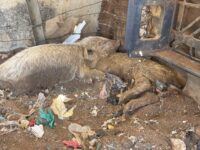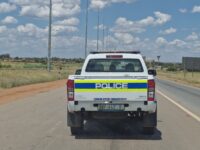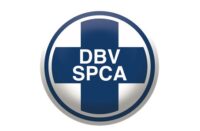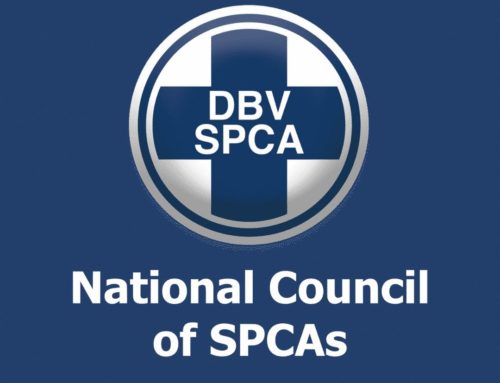Inspectors from the National SPCA’s Wildlife Protection Unit and officials from the Gauteng Enforcement and Compliance Department and the SAPS Endangered Species Unit conducted a raid of the property occupied by Jasyn Gertenbach in the northern suburbs of Johannesburg on Thursday 11 August 2016.
This came after the NSPCA was alerted to wild animals allegedly being “housed” in dirty and parasitic conditions and not given the correct care. Allegations of illegal keeping and trading of indigenous wildlife were also made.
On the property, various indigenous and exotic wild animals were found; confined to cages. Many of the animals did not have access to potable drinking water and it appeared that it had been that way for some time. Some of the cages had excessive amounts of accumulated faeces. Very little in the form of environmental enrichment was provided, inhibiting their freedom to express natural behaviours. “During our inspection of the property, the owner was instructed to provide the animals with water and some animals were actually fighting with each other to access the water containers,” said Inspector Arno de Klerk. “We were appalled by the conditions that some of the animals were being kept in.”
Animals were removed by the NSPCA on the grounds of the unacceptable conditions in which they were kept while others, mostly indigenous wildlife, were seized by the Environmental Management Inspectors as no paperwork or permits could be produced. They have subsequently been taken to a rehabilitation centre.
The NSPCA issued a warning in terms of the Animals Protection Act instructing that the living conditions of the animals remaining on the property must be improved. The NSPCA team will return to the property to check.
Charges are pending in terms of the Animals Protection Act, Gauteng Nature Conservation Ordinances and National Environmental Management; Biodiversity Act.
“Situations like these are not uncommon. The lucrative trade in indigenous and exotic wild animals as pets fuels the cruelty, leading to situations such as the one outlined above. We believe wild animals are wild and that is where they belong.”
If you are as passionate about animals and their well-being as we are, consider supporting our causes by donating.
Latest News Posts
Will You Be the One Who Takes Action?
Most people will scroll past this. But will you be the one who stands up for animals?
Animal welfare isn’t always in the spotlight, but it changes lives – for every neglected, abused, or suffering animal we help. Our teams work tirelessly, often behind the scenes, ensuring animals across South Africa are protected.
This work is relentless. The challenges are immense. But with more hands, hearts, and resources, we can do even more.
The equation is simple: the more supporters we have, the greater our reach, the stronger our impact.
Be part of the change. Become an NSPCA Project Partner today. From just R50 per month, you can help ensure that no animal suffers in silence.






